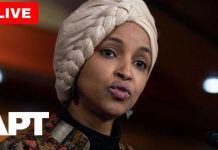
One politician’s promise to open New York City’s first Arabic language charter school has sparked a clash over who truly represents the city’s future—and who decides which cultures get a seat at the educational table.
Story Snapshot
- Andrew Cuomo, running as an independent for NYC mayor, vows to launch the city’s first Arabic language charter school, focusing on language and culture, not religion.
- The pledge is both a direct response to Muslim and Arab community advocacy and a pointed contrast to rival Zohran Mamdani, who opposes charter schools.
- Community leaders, including Sheikh Ibrahim Niass, have endorsed Cuomo, citing his history of support for Muslim causes and rejection of Islamophobia accusations.
- The debate exposes deep rifts over educational equity, political strategy, and the role of charter schools in a diversifying New York.
Cuomo’s Bronx Mosque Visit: Promise or Political Play?
Former Governor Andrew Cuomo’s campaign trail detour to the Ansarudeen Islamic Center in the Bronx did not go unnoticed. On September 20, 2025, Cuomo stood before congregants and community leaders, pledging to support and open New York City’s first Arabic language charter school if elected mayor. He framed the school as a solution to the longstanding absence of linguistic and cultural options for NYC’s Arab and Muslim students, emphasizing that the focus would be strictly on language and culture—not on religious instruction. The move comes as charter schools with Hebrew and Hellenic language programs already operate in the city, yet there remains a void for Arabic speakers—a gap many community advocates have called out for years.
Cuomo’s announcement quickly reverberated through political circles and the city’s network of immigrant and religious leaders. Sheikh Ibrahim Niass, spiritual leader of the Ansarudeen Center, praised the pledge as overdue recognition for a community that has long felt sidelined in public education debates. Community endorsements soon followed, as did scrutiny from opponents who questioned Cuomo’s motives and the broader impact of charter expansion on public school resources. Cuomo, however, leaned into his track record—his support for the Ground Zero mosque in 2010, vocal opposition to the Trump-era Muslim ban, and consistent engagement with Muslim New Yorkers—arguing that his proposal was a logical extension of his longstanding commitment to equity and inclusion.
The Political Stakes: Charter School Battle Lines Drawn
Cuomo’s proposal landed squarely in the middle of an ongoing war over charter schools in New York City. His chief rival, Zohran Mamdani—a progressive state lawmaker and Democratic socialist—has campaigned on curbing charter expansion, aligning with the United Federation of Teachers (UFT) and other public education advocates. Mamdani’s camp argues that charter schools siphon precious funds from public schools, deepening inequities and undermining accountability. The UFT has endorsed Mamdani, warning that further charter proliferation could erode the very foundation of public education. Meanwhile, Cuomo’s campaign has positioned the Arabic charter school as a test of cultural accommodation and educational justice, challenging Mamdani to explain why other language-focused charters exist while Arab and Muslim communities wait their turn. This clash has become a proxy for larger questions about who speaks for NYC’s most diverse communities—and whose vision of the city will prevail.
Throughout October, the debate intensified, with media outlets amplifying statements from both sides. While Cuomo hammered his message of inclusion and equity, Mamdani’s team largely sidestepped the specifics of the Arabic charter proposal, sticking to their opposition to charter schools in general. The silence left room for Cuomo’s supporters to frame the issue as one of overdue fairness and representation, rather than a simple policy dispute.
Community Voices and Controversy: Accusations, Endorsements, and the Islamophobia Debate
As the campaign spotlight sharpened, accusations of opportunism and even Islamophobia surfaced—claims that Cuomo and his backers vehemently rejected. Sheikh Niass and other Muslim and African community leaders publicly endorsed Cuomo, citing his record and dismissing attacks as politically motivated. They underscored the secular nature of the charter proposal, countering any suggestion that the school would cross the line into religious instruction. The message: this is about cultural and linguistic equity, not proselytizing. Cuomo himself took to various platforms to denounce Islamophobic rhetoric in the race and to reiterate his commitment to inclusion, using his campaign history as evidence. The episode highlighted a recurring feature of New York politics: the weaponization of identity and the delicate balancing act candidates must perform to win over increasingly diverse, mobilized constituencies.
Despite heated exchanges, the Muslim and Arab communities’ response has been largely positive, with many leaders calling the proposal a long-overdue step toward true representation. Yet, the debate revealed the fragile coalition politics at play: while some progressives bristle at charter expansion, others see specialized schools as vital tools for cultural affirmation and closing achievement gaps. The stakes are high, and the outcome could influence the city’s education landscape for years to come.
Looking Ahead: Implications for NYC’s Schools and Political Landscape
The Arabic charter school proposal remains in the advocacy phase. No formal application has been submitted to city or state education authorities, but groundwork is being laid through ongoing outreach, coalition-building, and relentless media coverage. In the short term, Cuomo’s pledge has already galvanized Muslim and Arab voters, potentially boosting engagement and turnout in communities that often feel overlooked. In the long term, if realized, the school could serve as a model for culturally responsive education, prompting other groups to seek similar recognition and resources. The ripple effects could transform both the charter sector and public education policy debates in New York and beyond. Experts warn, however, that balancing inclusion with oversight and equity will require constant vigilance from policymakers, advocates, and community members alike.
What began as a campaign promise could soon become a defining test of New York’s ability to honor diversity while maintaining common standards. Whether Cuomo’s gamble pays off at the polls—or in the classroom—remains to be seen. But one thing is now clear: the city’s future will be written in many languages, and the question of who gets to teach them is more urgent than ever.
Sources:
Andrew Cuomo campaign statements



